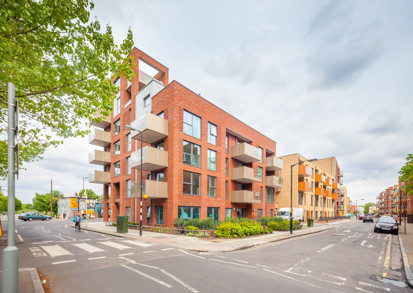What is service charge?
Service charge are charges for (communual) services you receive. The cost of maintaining shared spaces is divided amongst the properties in a building or on an estate.
What are core, block and estate service charges?
Click here for an indepth breakdown of these different schemes.
What are leaseholders, shared ownership, freeholders and an EMA?
Click here for an indepth breakdown of these different tenures & learn where to find your lease.
What isn't considered a service charge?
Some costs that might be confused with service charges, but are not included:
- Ground rent is paid by leaseholders to the freeholder or landlord for the land on which the building stands.
- Repairs or maintenance inside someone’s home.
- Personal utility bills which are individual to the resident, like electricity, gas, water, or broadband.
- Most of our properties are separate from communal utilities.
Services included in your Service charge
- Cleaning
- Insurance
- Maintenance
- Property Management
- Repairs
- Utilities
Full list of service charges that could appear on your statement
Fixed vs Variable service charges
Fixed service charges
Fixed service charges are predetermined amounts that are agreed in advance and don't change throughout the year.
Variable service charges
Variable service charges fluctuate based on actual costs incurred during the year. The amount paid may vary year by year depending on the expenses.
Surplus and deficits - Only apply to variable service charges
A surplus for the year arises where estimated service charges
costs are less than the amount spent. In these cases, we
issue a refund.
A deficit for the year arises where estimated service charges
costs are more than the amount spent. In these cases, we
issue a charge.
This charge is called a 'Prior Year Balance' (often seen
in the accounts as a PYB). How we administer the PYB
is different for tenants and leaseholders:
- Leaseholders – we refund the surplus or bill for the deficit in full.
- Tenants – we apply a credit (for a surplus) or a debit (for a deficit) to their rent account for the next financial year, based on the frequency of their tenancy (e.g., weekly or monthly).
Understanding your service charge
You should have received some letters from us detailing your estimated annual service charge, your actual service charge. Some of you may have also received a Section 20b booklet too. Understand what each section of these letters/booklets refers to here.
How is my service charge estimated?
The amount of service charge you' ll be asked to pay as a homeowner will be based on an estimate calculated by your property management officer (PMO) and sent to you in a service charge schedule.
This will take into account several variable factors, such as how much money was spent on the building in previous years, whether we expect certain costs to go up or down, and the anticipated costs of major works.
Your PMO will use all the information available to them to produce an estimate that is as close to the final actual costs as possible.
Your share
Your statement includes percentage figures showing your share of each cost based on your lease. This
may be calculated by the space you occupy or a 'fair proportion' of shared services you use, regardless of property ownership shares.
You can find how this is determined in your lease under 'Specified Proportion' in the Particulars section.
Factors like elevator access or parking rights may increase your percentage.

Please note that if the service charge is ?in dispute?for longer than 3 months, it is deemed recoverable or written off. We will also not investigate a dispute if the charge was demanded more than 6 years ago.
If you are still not happy after going through our disputes procedure, you can ask the First Tier Tribunal to settle the dispute. For more information on this process, you can access the Leasehold Advisory Service who are a free government service providing advice to leaseholders.
You can apply to the First-Tier Tribunal if you're a landlord, tenant, freeholder, leaseholder, park home occupier or site owner. Find out more from the government website here.


